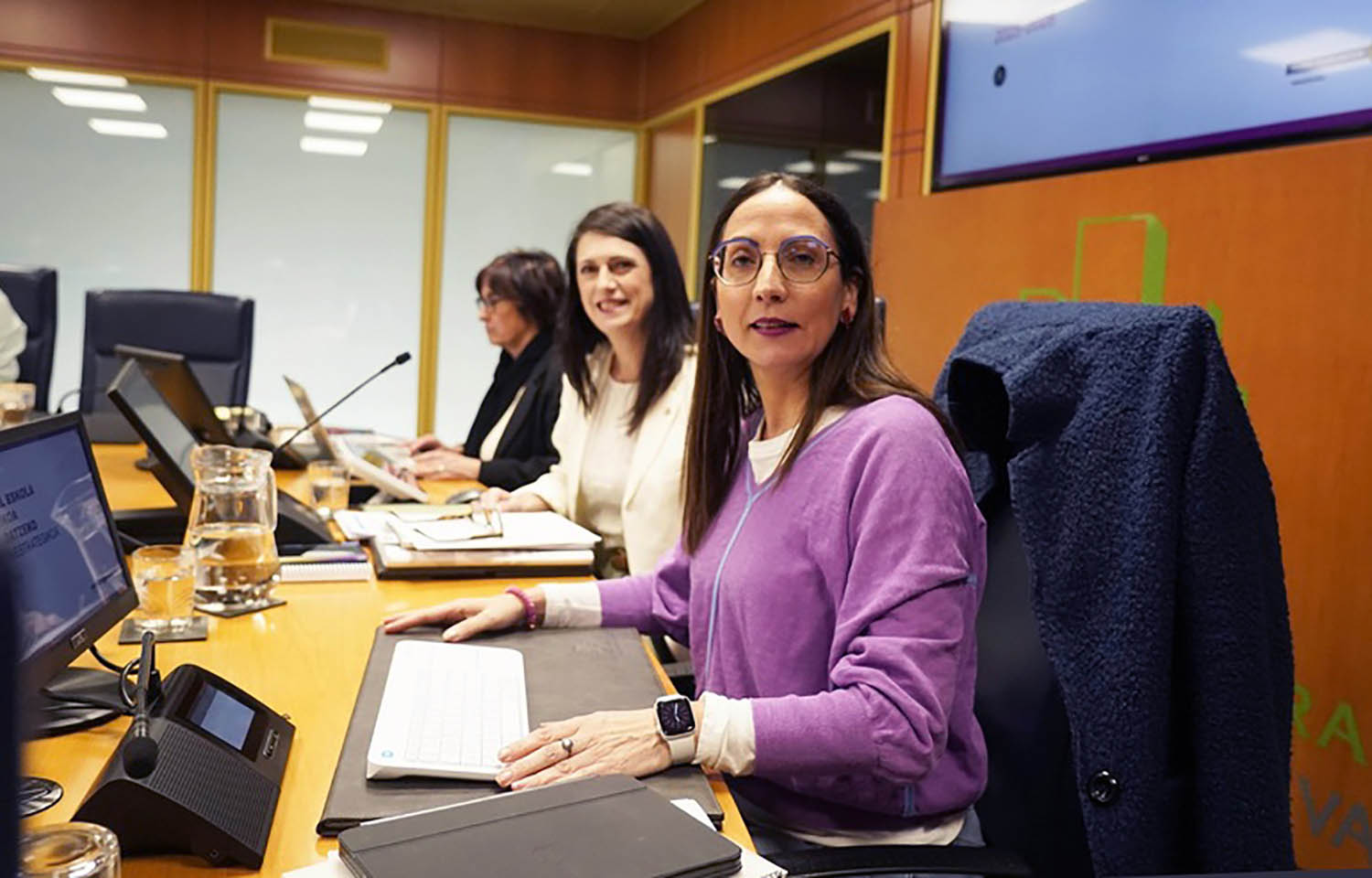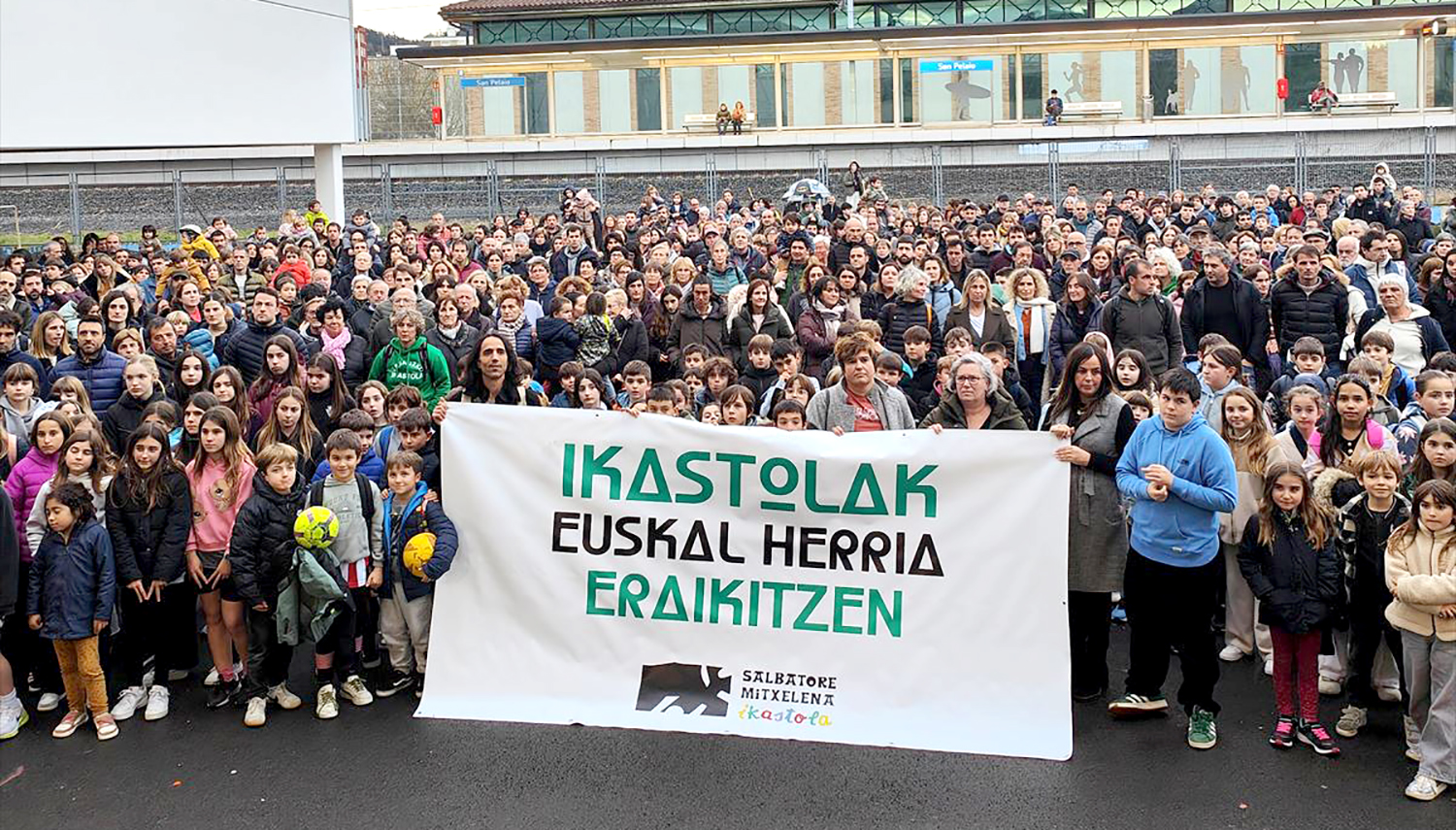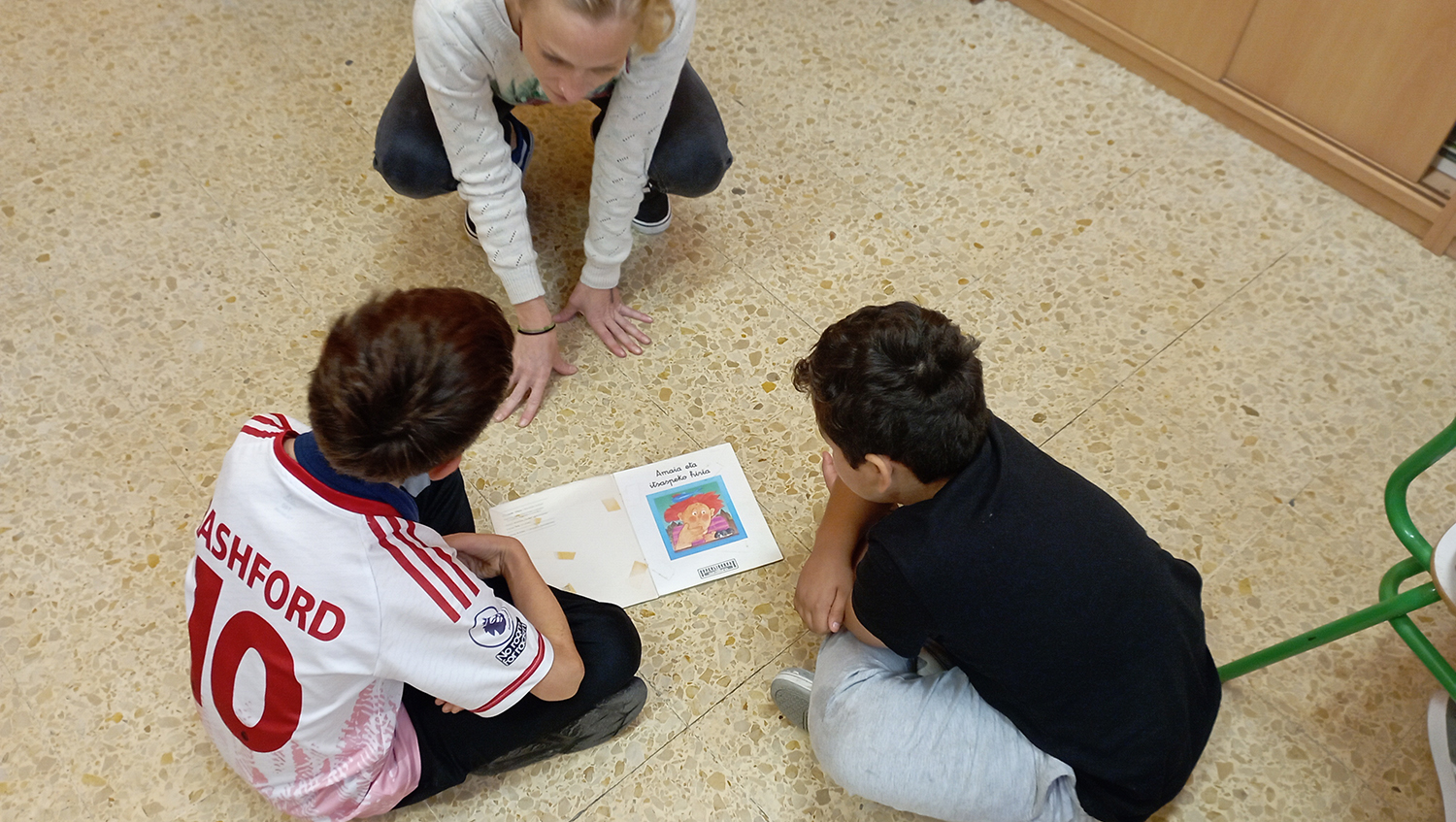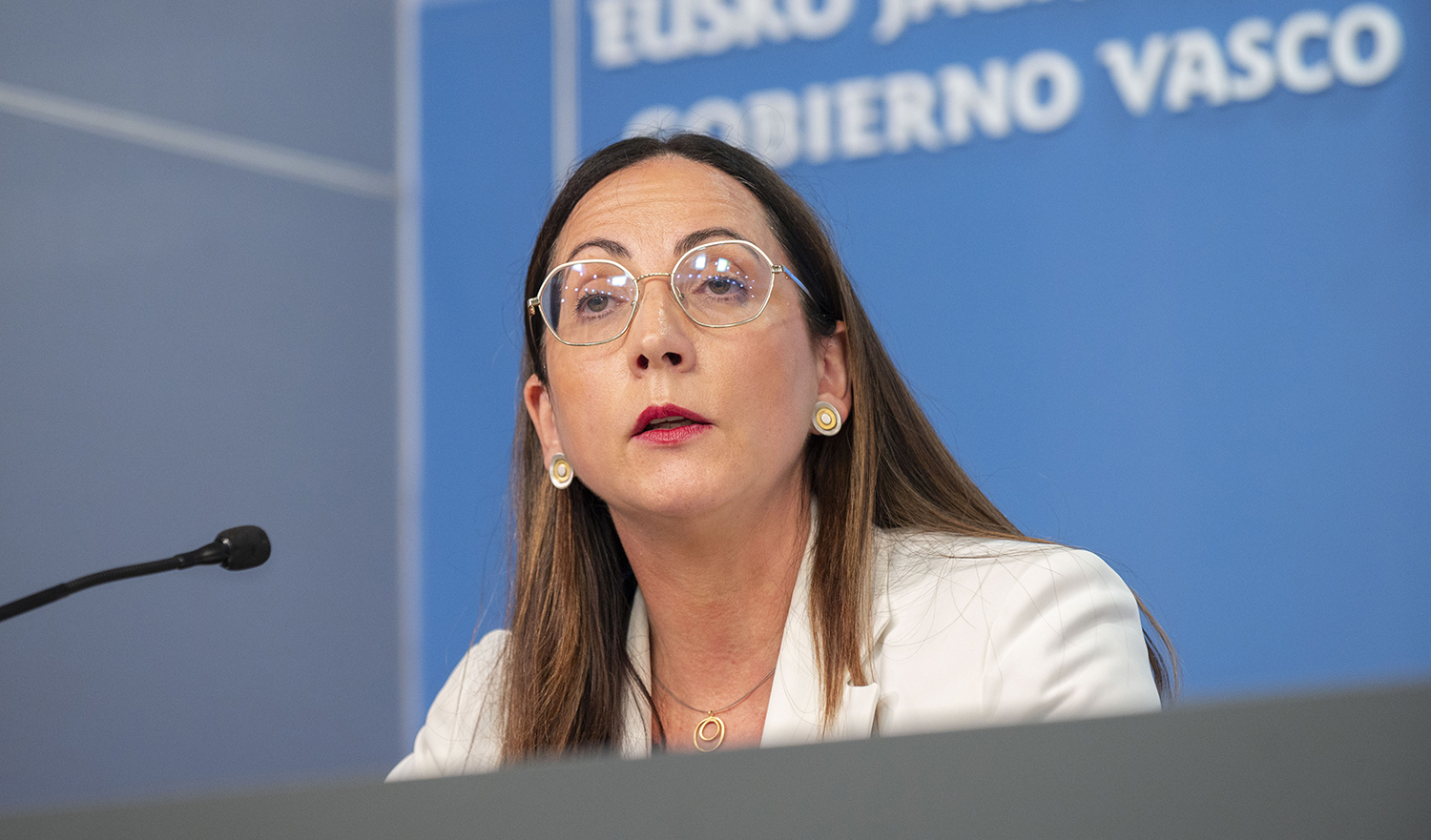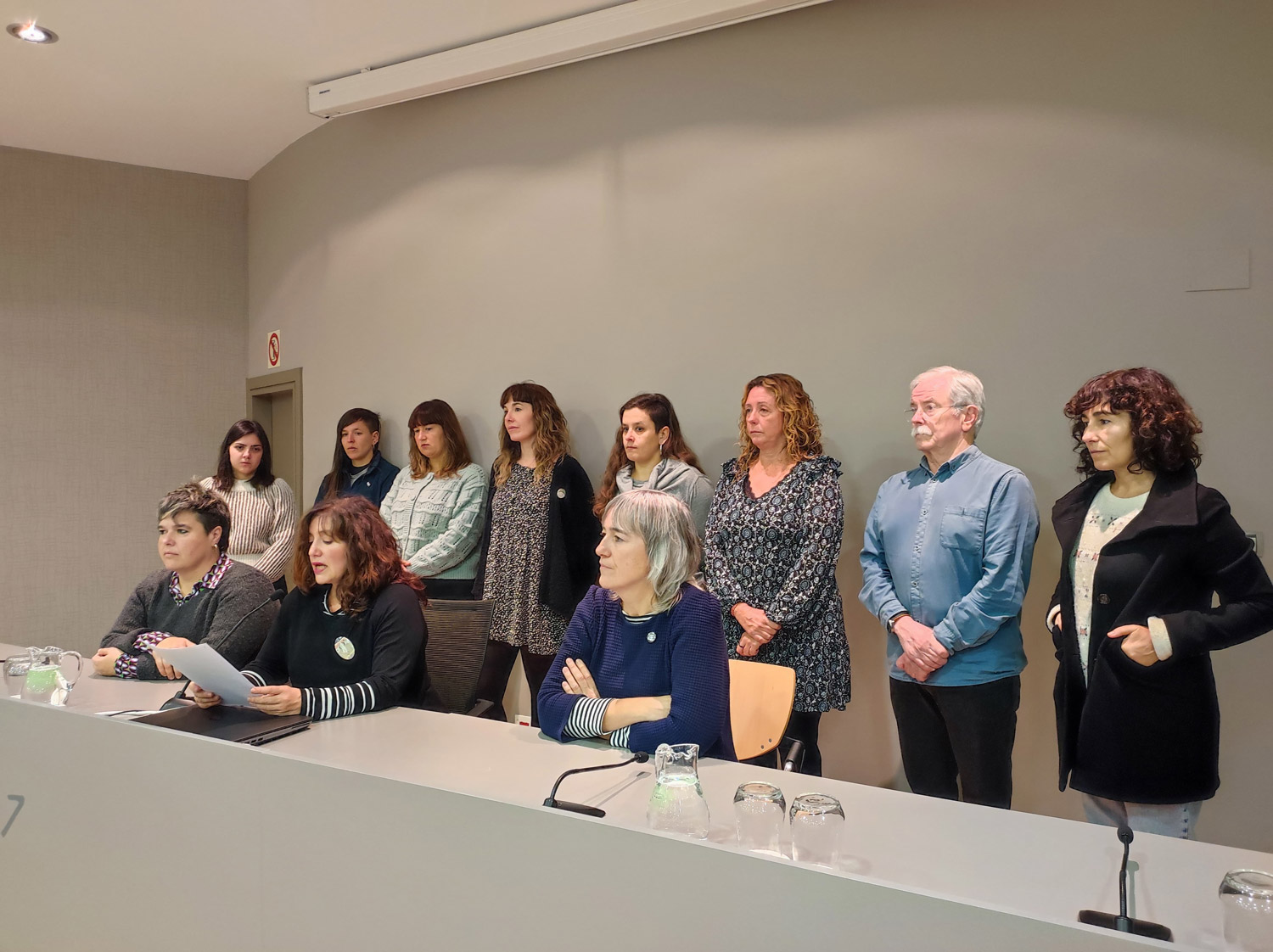Hik Hasi publishes a book that aims to be a tool to "seize the open opportunities" of the CAV Education Act
- Basque Law of Education. The Hik Hasi project presented the book Coordinates for the following day on Wednesday. “We have analyzed the possibilities opened by the new law to achieve a public, inclusive, social and inclusive education system for all, the advances it entails and what remains to be done.”

With contributions from several experts, Hik Hasi has produced a book that aims to be “an instrument for reflection and a stimulus to seize the opportunities opened in the new framework”. It has been presented this Wednesday, with the participation of many educational and cultural agents of the Basque Country.
Start from the Educational Proposal launched by Hik Hasi in 2017. This document lists ten keys to improving education. On this occasion, the work coordinated by Ainhoa Azpirotz, Arantxa Urbe, Xabier Sarasua and Josi Oiarbide gathers voices from the educational world. The contributions of this book include: Mariam Bilbatua, Olaia Jimenez, Jon Sarasua and Karmele Perez de Huhezi; Xabier Aierdi and Maialen Oiartzun of the UPV; Iñaki Iurrebaso; Xavier Bonal of GEPS; Iratxe Retolaza; Gotzon
The book is divided into four sections. In the section A new governance, Hik Hasi stressed that the principles and articles of the new educational law have opened the doors to enable the intervention of municipalities and local authorities. They have already received several experiences that have broken these paths: Errenteria - Orereta, Vitoria-Gasteiz, Zaldibia, Lesaka, Baztan, Durango, Bergara and Eibar.
In the Basque section of Euskera in Basque education, Hik Hasi has focused on the goal that marks the law: at the end of the ESO students must reach at least level B2 in the two official languages. “To this end, it is necessary to develop and guarantee the opportunities open within the framework of the law.” It must be clearly stated, it says, evaluation, intervention, corrective measures, consequences, training…
The autonomic section analyzes the degree of autonomy of the centers in the management of European public educational systems. “Let us know the models around us, let us not limit ourselves to the models of the French and Spanish states.” Hik Hasi welcomes the Basque Public Educational Service, created by law and which has sparked controversy, because “it offers the possibility of merging centers of different degrees”. However, “in order for the progress to be truly significant, three conditions must be met: that all centres have the same rights and duties in all areas, within the time agreed between the Department of Education, political parties and educational actors; that controls be regulated and consequences determined; and that a comprehensive improvement plan be agreed and put in place for schools of public ownership”.
In the fourth section, students and teachers, some keys are presented for younger children (0-3 years) and adolescents to be in the center and taken into account by the special characteristics of these stages. The change taking place from management to management teams has also been addressed.
From the law
“It is clear from Hik Hasi that further work will need to be done to improve law-enforcement procedures and enforcement based on the law passed.” He has also listed a number of milestones: In the words of Hik Hasi, the law must serve to overcome the confrontation and competition between networks; it must be analyzed to what extent the law will allow community education, local management, local synergies and mutual collaboration among the agents; the law must contribute to face school segregation; it must serve to make the new generations become multilingual Basque Basque; it must contribute to the participation of the entire school.
* In the CAV Education Act channel you will find everything that ARGIA has published about the law.
Why concerted teaching?
The new Education Act adopted by the CAV against most public school officials aims to ensure that concerted education is free of charge through the financing of public authorities. The Spanish State has also announced a significant increase in public... [+]
Hunters, Marianistas, Niño Jesús, CEU San Pablo - Virgen Niña, Carmelitas, Presentation of Mary, Vera Cruz, NClic, San Viator, Escorapias, Scholapios, Bárdarias, Nazareth, Immaculate Conception, Hogar San José, Egibide. More Olabide by Eusko Ikastolen Batza. Finally, the... [+]
In response to the numerous statements of the new Education Advisor, Begoña Pedrosa, Law 17/2023 on Education will be implemented at the beginning of the course, approved in Parliament with the sole support of the PNV and the PSE. This implementation will entail the application... [+]
Who orders us ...?
The Basque Government has just been set up and the Minister for Education will be Begoña Pedrosa. Being a vice-counselor in the previous legislature and being one of the founders of the new Education Law passed last December, we are allowed to ask some... [+]
The recently passed Education Act is as bad as it is new. Throughout the processing process there has been a broad social sector against the spirit of this law, and this opposition has been greater in the face of its adoption. We want to make public the assessment and reflection... [+]
The new Education Act, which had to be born of consensus, was adopted in anger and disagreement. The lack of agreement is due to the public-private question and linguistic models. A lot of pity.
In this we follow the Spanish model, because in the CAPV we are not able to lay... [+]
Those of us who write and sign these lines are young people between 20 and 26 years old who have joined us in the context of the generational relay of Euskalgintza. In our case, we have decided to contribute to the struggle of the Basque Country in the Basque Country from... [+]








